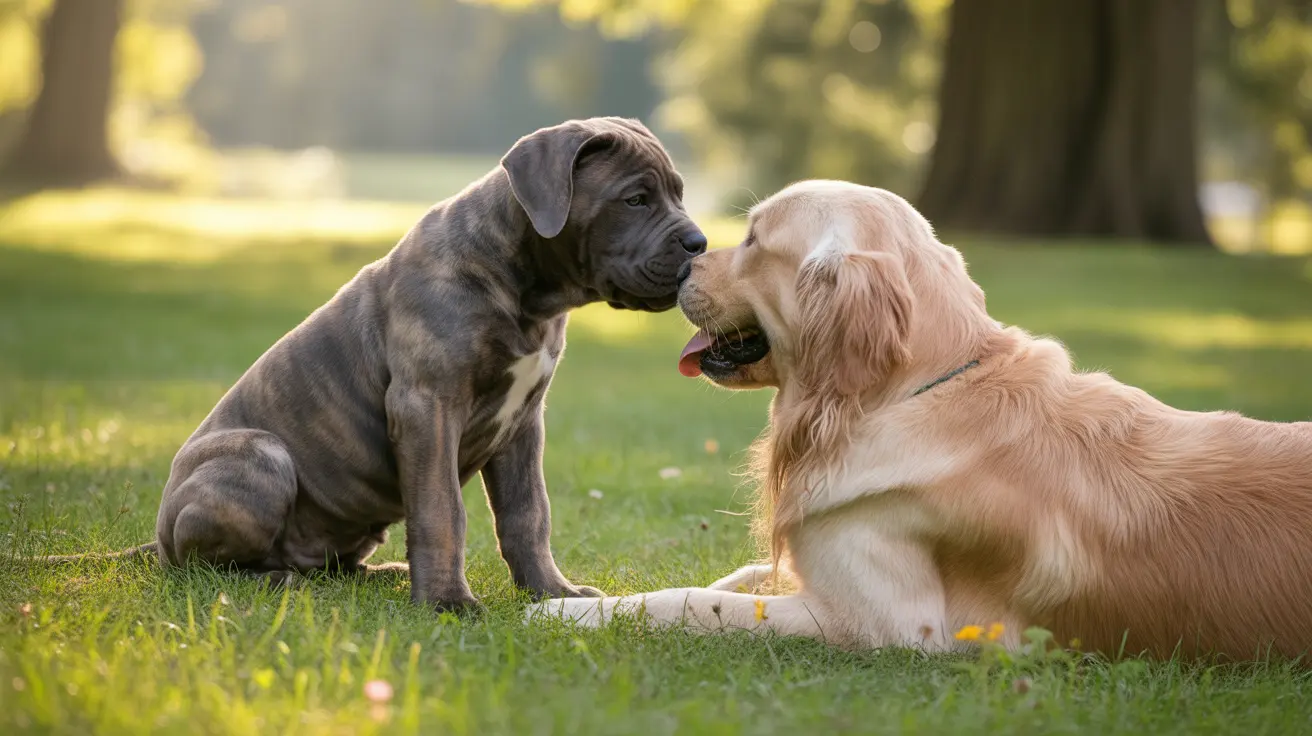Bringing home a Cane Corso puppy is an exciting but significant responsibility. These powerful Italian mastiffs grow into impressive guardians, but their journey from puppy to well-adjusted adult requires dedicated training, proper socialization, and understanding of their unique needs.
In this comprehensive guide, we'll explore everything you need to know about raising Cane Corso puppies, from their early development stages to essential training techniques that will help shape them into balanced, confident adults.
Early Development and Socialization
The first few months of a Cane Corso puppy's life are crucial for their behavioral development. These intelligent dogs need extensive socialization between 8-16 weeks of age to develop into well-adjusted adults.
Expose your puppy to various environments, people, sounds, and experiences during this critical period. This includes:
- Different surfaces and textures
- Various sounds and situations
- Meeting friendly, vaccinated dogs
- Positive interactions with different people
- Car rides and new environments
Essential Training Foundations
Cane Corso puppies require consistent, firm, but gentle training from day one. Their natural intelligence and strong-willed nature mean they'll test boundaries if not given clear direction.
Start with these fundamental training areas:
- Basic obedience commands
- Leash manners
- Bite inhibition
- Crate training
- House training
Exercise and Physical Development
While exercise is important, be mindful of your Cane Corso puppy's developing joints. Follow these guidelines:
- Keep exercise sessions short and frequent
- Avoid high-impact activities until growth plates close
- Focus on mental stimulation alongside physical exercise
- Incorporate play-based learning
Health and Nutrition
Proper nutrition is crucial for healthy development in Cane Corso puppies. Feed a high-quality large-breed puppy formula to support their rapid growth while preventing excessive weight gain that could stress their joints.
Regular veterinary check-ups are essential to monitor:
- Growth rate and weight
- Joint development
- Vaccination schedule
- Preventive care needs
Frequently Asked Questions
How do I socialize a Cane Corso puppy to prevent aggression towards strangers?
Start socialization early, exposing your puppy to various people in positive situations. Use treats and praise to reward calm behavior around strangers. Never force interactions; let your puppy approach people at their own pace while maintaining a confident, relaxed atmosphere.
What are the best exercise routines for a Cane Corso to maintain physical and mental health?
Combine structured walks with mental enrichment activities like puzzle toys and training sessions. As puppies mature, incorporate controlled fetch games and swimming. Avoid high-impact exercises until physical maturity around 18-24 months.
How often should I bathe and groom my Cane Corso, and what are the essential grooming tools I need?
Bathe your Cane Corso every 6-8 weeks or as needed. Essential tools include a rubber curry brush, stainless steel comb, and nail clippers. Weekly brushing helps maintain coat health and reduces shedding.
Can Cane Corsos thrive in apartment living, or do they require a specific type of environment?
While possible with sufficient exercise and training, Cane Corsos generally do better in homes with secure yards. Apartment living requires exceptional commitment to exercise and enrichment activities to prevent behavioral issues.
Why is early training crucial for Cane Corso puppies, and what techniques should I use for effective obedience training?
Early training prevents dominance issues and establishes proper boundaries. Use positive reinforcement methods, focusing on consistency and clear communication. Start with basic commands and gradually progress to more advanced training as your puppy matures.
Conclusion
Raising a Cane Corso puppy requires dedication, patience, and knowledge. With proper training, socialization, and care during their developmental stages, these puppies can grow into confident, well-adjusted adult dogs that make loyal and protective family companions.
Remember that every puppy develops at their own pace, and consistent, positive guidance will help ensure your Cane Corso grows into a balanced and reliable adult dog.






